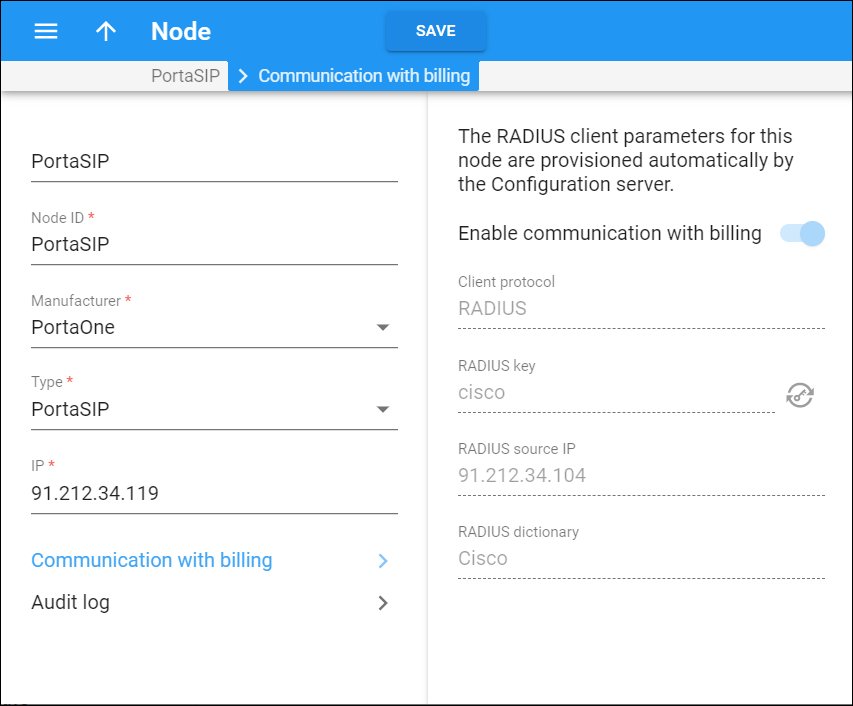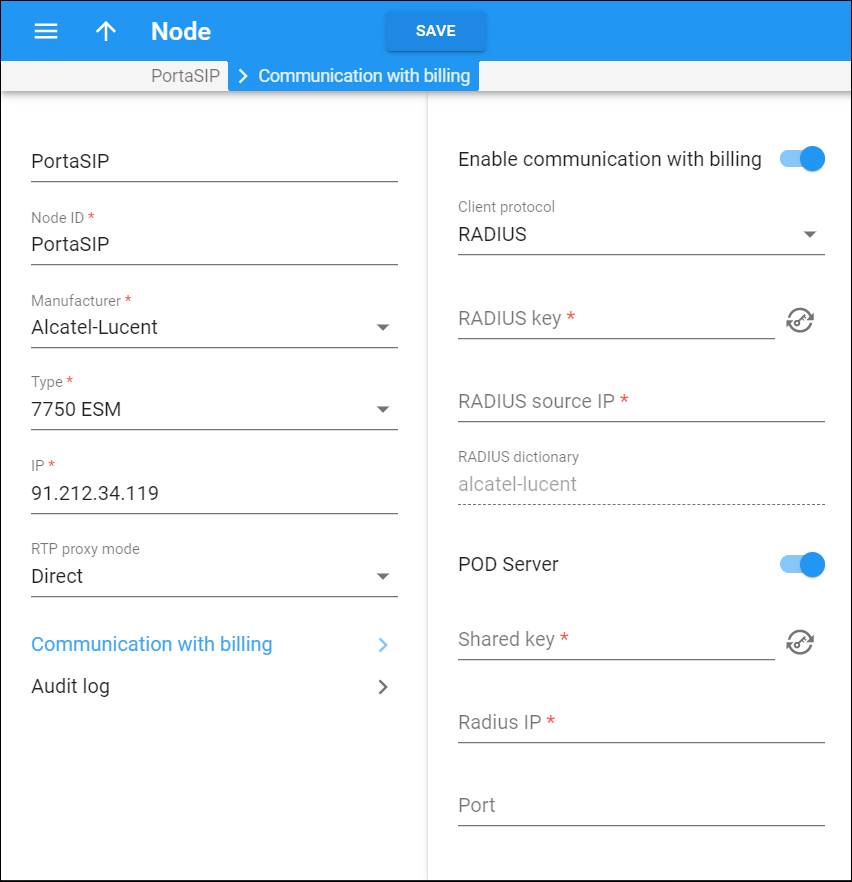Enable communication with billing
This defines that the node will communicates with the billing engine.
Client protocol
This is the protocol via which the node communicates with the billing engine. It is predefined for the majority types of node. Select the client protocol for PortaOne Generic types of nodes. The options are: RADIUS, Diameter.
RADIUS key
The authentication key for all RADIUS interactions. Enter the key value you have specified for this node on the Configuration server, or click Generate to automatically generate a hard-to-guess key.
RADIUS source IP
A node can have more than one network interface. Specify the IP address of the one that communicates with the billing engine.
RADIUS dictionary
This is the name of the file with the list of RADIUS attributes and values which the server uses for mapping among names used by people and binary data in the RADIUS packets. This field is read-only and is predefined for every node that supports the RADIUS protocol to communicate with the billing engine.
Realm
The realm of the node that communicates with the billing via the Diameter protocol. It is used to identify the node within Diameter messages.
POD Server
The POD server is a service that controls Internet sessions on the NAS based on RFC 3576.
When enabled, PortaBilling communicates with NAS via either RADIUS or Diameter protocols to change the parameters of a current session or to terminate it. For example, when an internet-connected account runs out of balance, exceeds its data transfer limit, switches access policy or expires.
To perform real-time charging, move the slider box to enable enable the POD server for gateways that support RADIUS CoA (Change-of-Authorization) and/or DM (Disconnect Message) and Diameter RAR (re-authorization request).
Shared key
A shared secret that is used for authenticating requests. Click Generate to generate the key. This option is available for Cisco, Mikrotik, Huawei, ECI and Alcatel-Lucent nodes.
Radius IP
The server IP address to which POD requests are sent. This option is available for Cisco, Mikrotik, Huawei, ECI and Alcatel-Lucent nodes.
Port
The Internet UDP port to which POD requests are sent. If not specified, the default port typically used for the NAS device is used (e.g., 3799). This option is available for Cisco, Mikrotik, Huawei, ECI and Alcatel-Lucent nodes.




